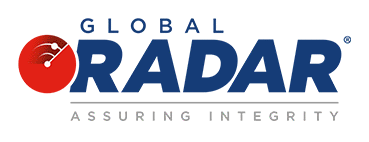Ericsson Sued by U.S. Terror Victims
Swedish telecommunications staple Ericsson has found itself in the midst of an ugly legal dispute over contentious business practices dating as far back as 2005. Both the individuals themselves as well as the families of over five-hundred Americans who were killed, injured or taken hostage by Middle Eastern terrorist groups during the Iraq war have claimed that the company’s bribe payments to Al Qaeda and other militant groups in the area ultimately helped fund terror activities across Iraq, Afghanistan and Syria. The class-action suit, which cites the U.S. Anti-Terrorism Act of 1990, alleges that these bribes were made to allow Ericsson to continue to operate uninhibitedly in Iraq during this time. Under this law, victims of terrorism are allowed to seek damages in U.S. courts—which includes both individuals and companies alike that aid and abet terrorism. In their legal complaint, the victims accused Ericsson of funding the terrorist organizations to essentially leave them alone.
The victims have also claimed that Ericsson viewed the payoffs as simply the cost of doing business in the region, developments that have become relatively common by large companies with disregard for regulatory compliance and global sanctions campaigns over the past two decades. “The payments saved Ericsson money,” they said in the complaint. “It was cheaper to pay off al-Qaeda and Islamic State than to invest in the security necessary to mitigate the terrorists’ threats.”4 To date, Ericsson has vehemently denied the claims against them, noting that an internal investigation run in 2019 found that payments were made to intermediaries and never directly to the aforementioned parties. Ericsson ultimately relieved several employees of their duties following the probe while working to improve its internal controls. The firm recently released a statement in regards to these latest allegations saying they would “zealously defend against” the suit. “Any effort to connect Ericsson to the actions described in the complaint will fail on the merits,” the company said.4 Furthermore, the lawyer for the victims in the suit has urged the U.S. Justice Department and the Securities and Exchange Commission to investigate Ericsson’s officers and employees, including their legal and compliance personnel due to alleged compliance-related improprieties and ties to corruption.4
These developments are far from the first claims of misconduct against the company in recent years however. In late 2019, the company agreed to pay total penalties of more than $1 billion to resolve the government’s investigation into violations of the Foreign Corrupt Practices Act (FCPA) arising out of the firm’s scheme to make and improperly record tens of millions of dollars in improper payments around the world.1
U.S. Government Concerned About Gangs and Gold in Brazil
In other recent news, the United States government has expressed concern over a new connection between drug gang activity and gold mining in the Amazon rainforest. This past week, U.S. Treasury officials met with Brazilian law enforcement and civil society regarding the matter. U.S. Under Secretary for Terrorism and Financial Intelligence Brian Nelson reported that the Treasury Department is aware of striking information linking Brazilian-based global cocaine trafficking company First Capital Command (PCC) and gold miners that are ravaging the rainforest. The PCC has been on the United States radar for some time now, as the group’s destabilizing activities have been evident in the country for more than three decades. They are now Brazil’s most powerful criminal organization, partially responsible for Europe’s current flood of cocaine. Their illicit activities have developed into such a wide-scale issue that the Biden Administration ultimately levied financial sanctions on the PCC in December of 2021.
PCC’s new suspected ties to gold mining are particularly concerning, not only because murderous drug gangs are not exactly known for being green-friendly and environmentally conscious, but also because of the potential for money laundering and these activities funding further expansions into new territories. “We are focused on illegal gold mining … because it can both generate resources for other illicit activities, given the value of gold, as well as providing a vehicle to launder the illicit resources from narco-trafficking,” Nelson told journalists.3 He claims more “technical discussions” will continue with Brazil on the matter. Unfortunately, illicit mining has become a widespread issue across South America. The Amazon Network of Georeferenced Socio-Environmental Information (RAISG) estimates that of the 1.5 million square miles officially protected by indigenous and natural areas in the nine Amazon nations, 336,600 square miles (~22 percent) are subject to threat or pressure from mining and oil projects.2
Citations
- “Ericsson Agrees to Pay over $1 Billion to Resolve FCPA Case.” The United States Department of Justice, 29 Apr. 2020.
- Gonzales, Jenny. “Amazon Infrastructure Puts 68% of Indigenous Lands / Protected Areas at Risk: Report.” Mongabay Environmental News, 5 Aug. 2019.
- “U.S. Treasury Eyes Brazil Drug Gang Ties to Illegal Amazon Gold Mines.” Reuters, Thomson Reuters, 17 Aug. 2022.
- Vanderford, Richard. “Ericsson Sued by U.S. Terror Victims over Alleged Iraq Bribe Payments.” The Wall Street Journal, Dow Jones & Company, 5 Aug. 2022.

